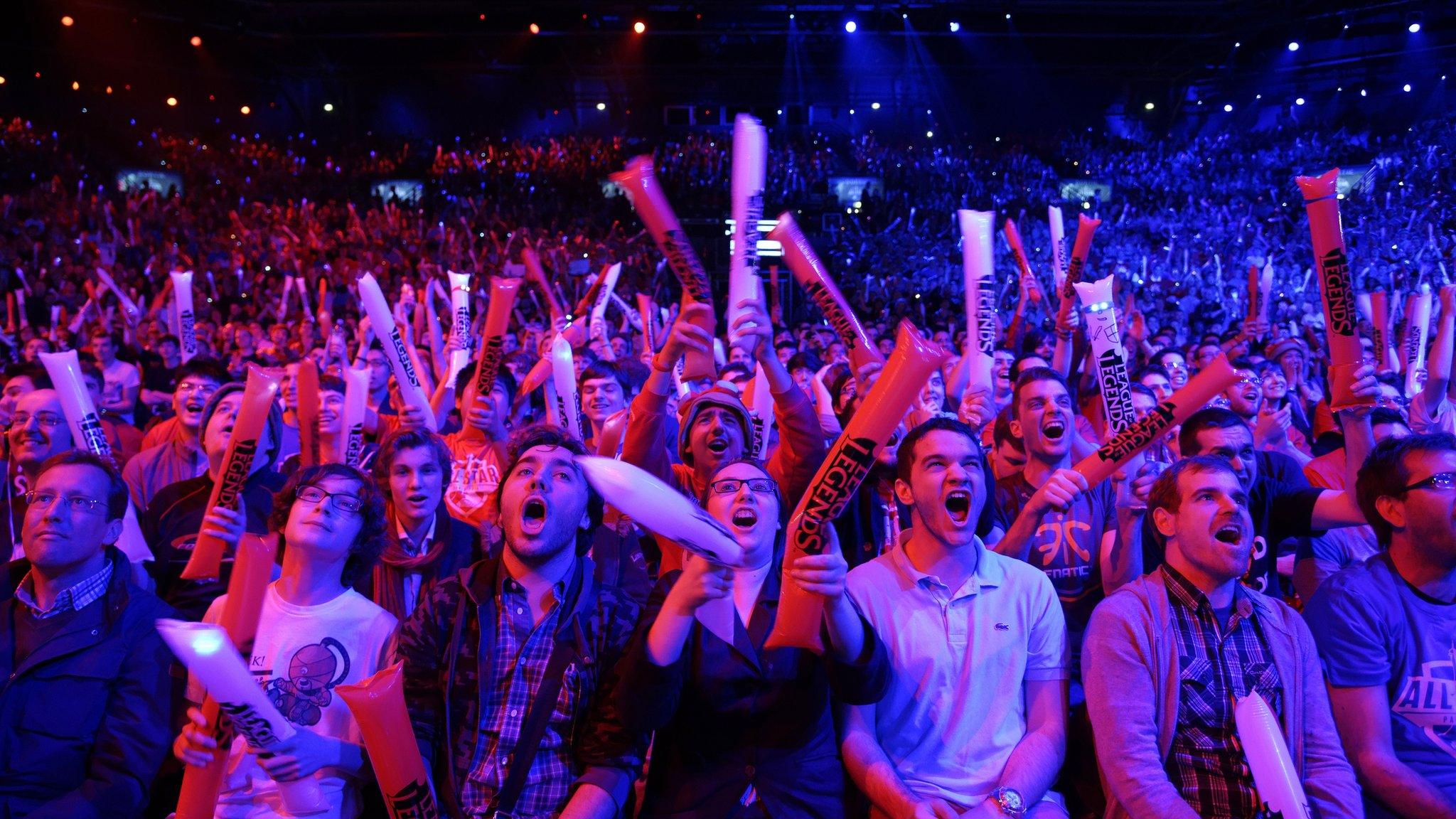Guide: What are e-Sports?
- Published
Should schools have eSports teams? Newsround reporter Whitney spoke to fans and players at an eSports competition.
There is a new type of sport that has become extremely popular.
"e-Sports" are enjoyed by many children and adults who enjoy getting competitive with their computer gaming.
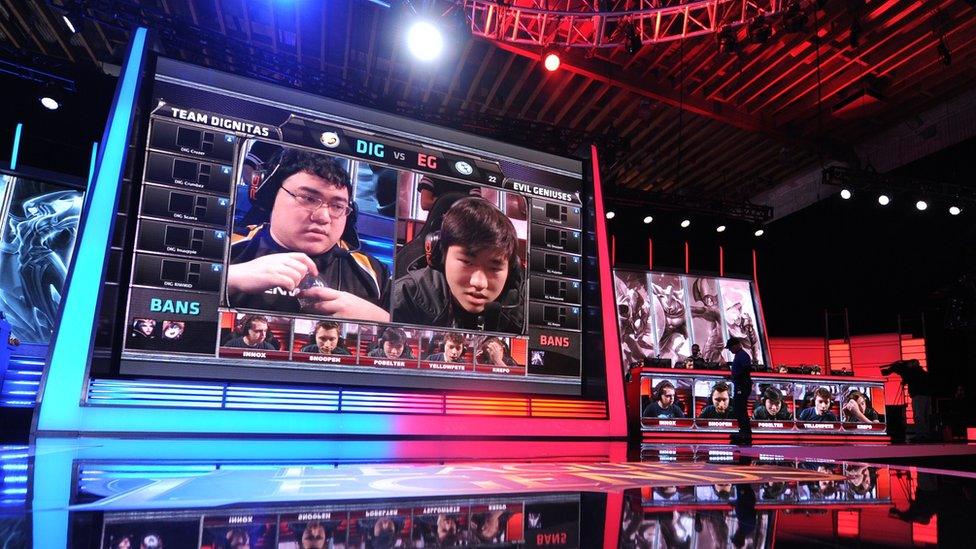
At big eSports tournaments, gamers compete against each other in front of big crowds of fans
But what exactly are they and why have e-Sports become such a big deal?
What are e-Sports?
"e-Sports" is simply the short name for electronic sports.
Just like football players play football together, e-Sports players play computer games against each other.
What is shoutcasting?
But it doesn't just take place inside living rooms between friends and family. Huge e-Sports tournaments now take place all over the world in big arenas with large crowds.
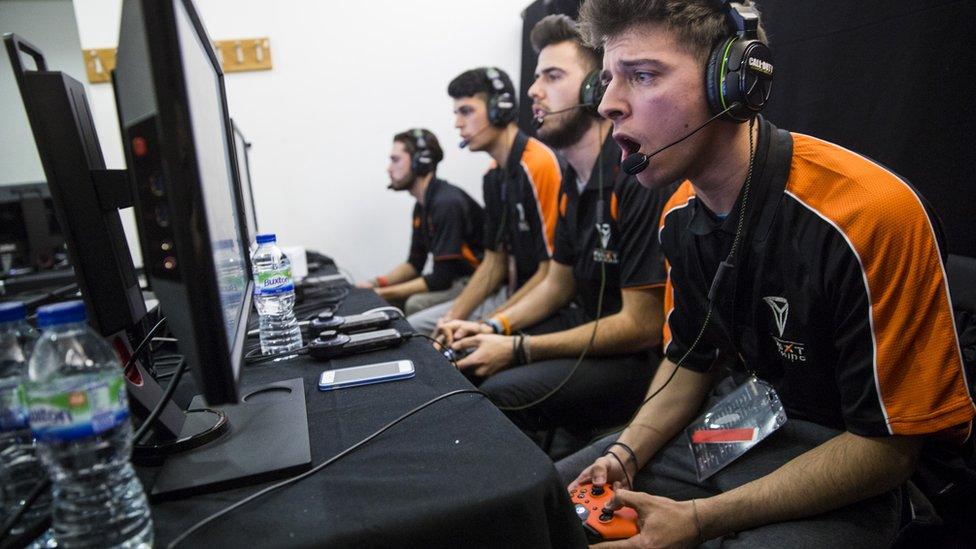
People can play together in teams, like football players play together on a team
For big tournaments with well-known players, fans from all over the world may tune in to watch the action online, and competitors may even get paid for doing it.
They are also likely to play in teams, rather than on their own.
Meet 'Munchables', an esports commentator
At an e-Sports competition, gamers will battle against each other on a particular game, with fans watching on screens.
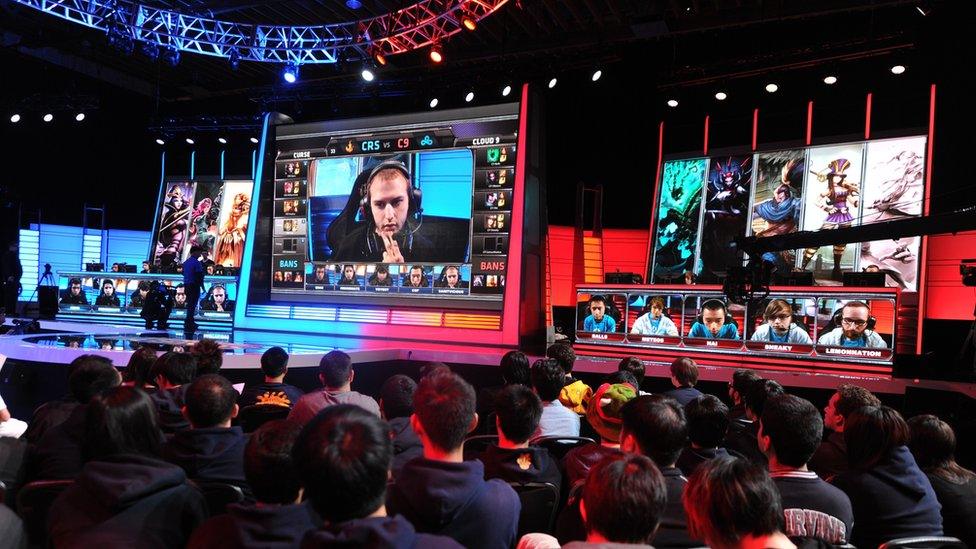
Competitions can take place in big arenas, with many fans watching on big screens, just like they would at a football game
Where did e-Sports come from?
People playing computer games against each other is nothing new - gamers have been doing this for over 30 years.
Around the year 2000, computers became cheaper and the internet became faster, which made it much easier for more people to get involved with computer gaming.
It also became easier to connect with gamers around the world, so people could play against each other - and watch others.
Now, players have become so skilled - and, in some cases, gained so many millions of fans - that computer gaming has become organised, competitive and professional.
As a result, it has been given its own name - "e-Sports".
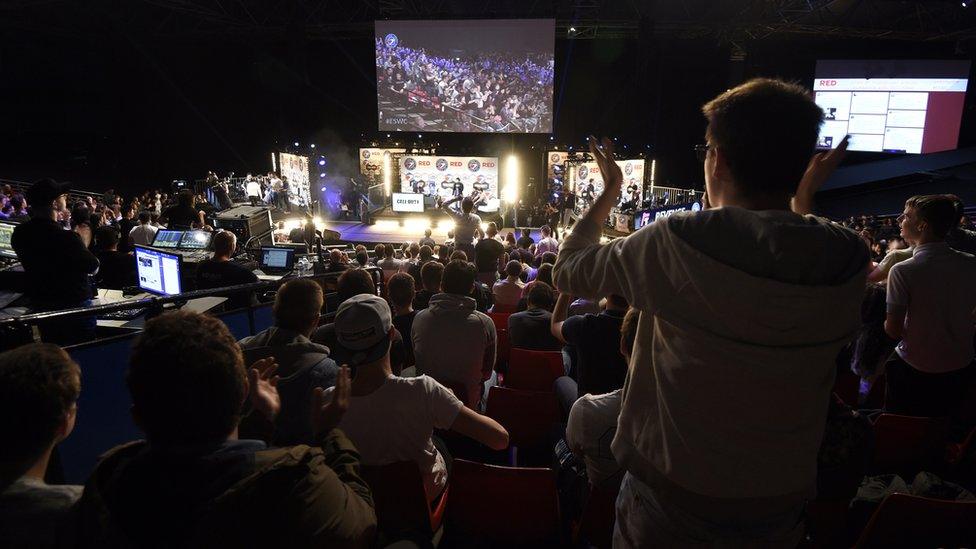
Many eSports events are now organised all over the world, attracting millions of fans
Not everyone agrees that computer gaming should be considered to be a sport.
Some people think that sport should involve being more physically active.
But others think that even though it may not be as physically athletic as tennis or rugby, the skill involved means it can be considered a sport.
Why are e-Sports such a big deal?
e-Sports have become extremely popular over the past few years and many companies all over the world are realising there is a lot of money that they can make from them.
Gamers in the UK spent almost £3.3 billion on computer games in 2016, according to computer game research company Newzoo.
Meanwhile, the winners of eSports competitions can go home with thousands of pounds in prize money, so there's serious cash involved.

eSports have attracted millions of passionate fans all over the world
You only have to look at how many thousands of people go to the arenas to watch eSports competitions to see that they are as important to many people as any other sports match.
The biggest eSports event in 2015 was the League of Legends World Championships final, which attracted more than 35 million viewers!
Is it easy?
Playing computer games for your job might sound like a dream come true - and to many people it will be!
But don't be fooled, the best e-Sports players have to put in a lot of hard work and training.
What does an esports player do? Manchester City's Kez Brown explains
Some players might train for up to 14 hours a day to make sure they have extremely quick reflexes and reactions. Players might make more than 300 "actions" per minute, so they have to be able to multi-task extremely well.
Professional gamers need to practice for hours. If there's an update, they need to make sure they've mastered any changes, so that they can still be the best at it.
What does the future look like?
There is no doubt that e-Sports are on the rise.
"Traditional" sports clubs, like Premier League football teams, are starting to buy e-Sports players to represent them in competitions.
Earlier in 2016, it was announced that e-Sports would be getting an official organisation, called the World e-Sports Association, to be in charge of the sport - a bit like Fifa does for football.
Then, in the summer, it was revealed that the UK would be getting its first 24-hour TV channel dedicated completely to e-Sports.
There's no doubt that exciting changes are happening and as technology improves, e-Sports could keep on growing.
Could it be bigger than football one day? Only time will tell.
- Published6 March 2015

- Published23 June 2015

- Published28 December 2014
